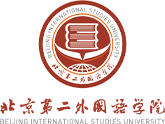
Beijing International Studies University (BISU) hosted the University Presidents' Forum on International People-to-People Exchange & the 38th Annual Conference of China Foreign Studies Universities on Oct 18.
The forum centered on international people-to-people exchange, highlighting the vital role of academic collaboration among civilizations. It advocated for enhancing mutual understanding and cooperation through cultural dialogue, contributing insights toward the harmonious progress of humanity.
The forum attracted presidents and scholars from more than 20 universities, including Beijing Foreign Studies University, Shanghai International Studies University, Guangdong University of Foreign Studies, Beijing Language and Culture University, Xi'an International Studies University, Kyoto University of Foreign Studies, Queen Mary University of London. Participants shared their experiences in cultural exchange, contributing valuable insights and fostering a broad consensus.
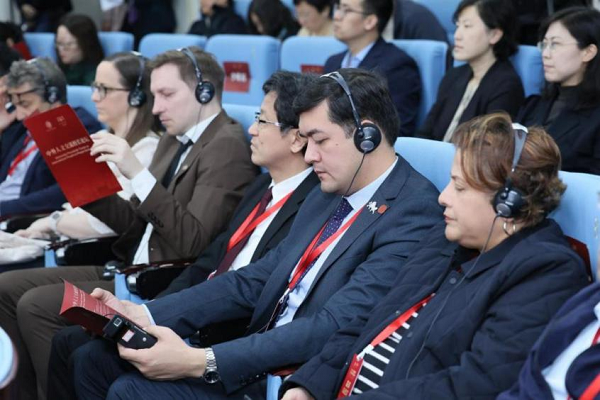
Guests attend the University Presidents' Forum on International People-to-People Exchange.
In his address, Ji Jinbiao, deputy secretary of the CPC BISU Committee and president of the university, emphasized the university’s reforms that integrated talent cultivation, teaching and research, social service and international exchange into its core mission of promoting international people-to-people exchange.
He called for greater collaboration among institutions to strengthen consensus, pool wisdom and jointly advance the cause of cultural exchange, thereby contributing to the establishment of a community with a shared future for mankind.
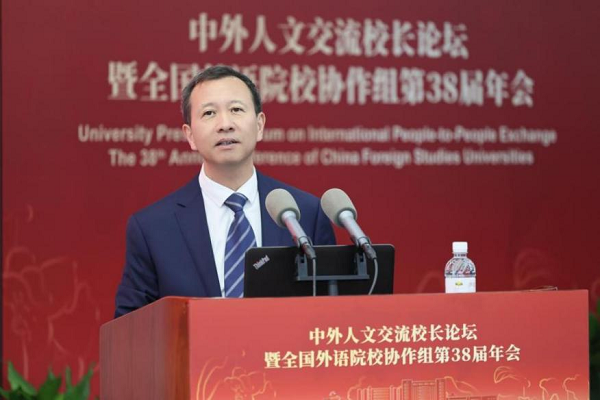
Ji Jinbiao calls for more collaboration between BISU and partner universities.
Zhang Yaotian, deputy director of the Beijing Municipal Education Commission, spoke of the 38-year history of foreign studies universities in responding to national calls, achieving notable outcomes in promoting internationalization and engaging in global education governance.
He expressed optimism that the forum, themed around international people-to-people exchange, would inspire more cultural exchanges. He encouraged universities to enhance exchanges and mutual learning for talent development, working together to cultivate a generation of young people with a global outlook and concern for humanity.
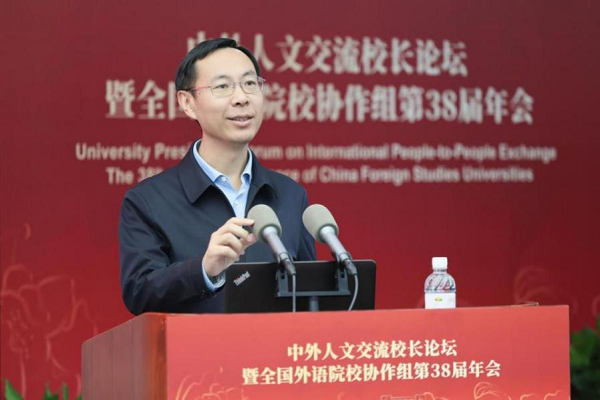
Zhang Yaotian encourages universities to enhance exchanges for talent development.
Jia Wenjian, president of Beijing Foreign Studies University (BFSU), discussed the university's achievements in promoting international people-to-people exchange. He highlighted the university's contributions to the global governance of education through the construction of its regional and national studies.
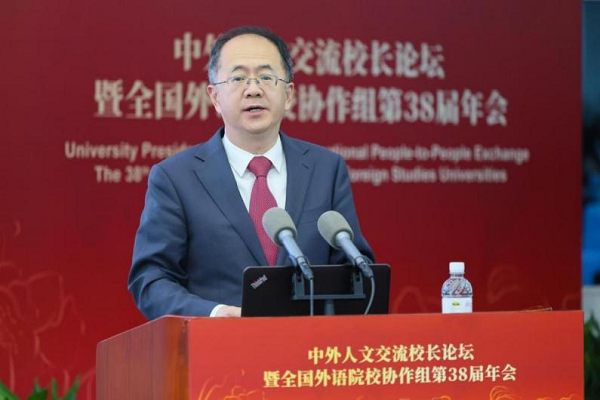
Jia Wenjian highlights BFSU's contributions to the global governance of education.
Yin Dongmei, secretary of the CPC Shanghai International Studies University (SISU) Committee, shared insights on the university's initiatives aimed at advancing international people-to-people exchange.
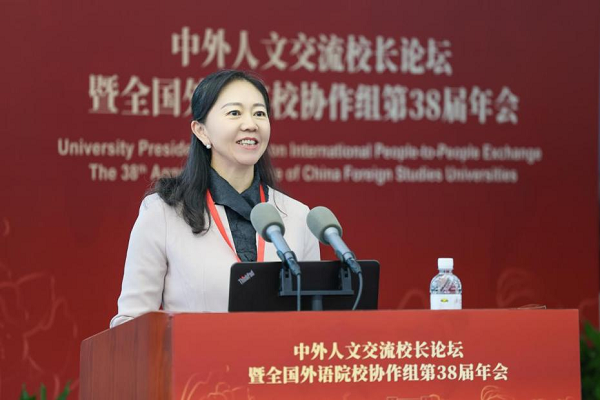
Yin Dongmei spoke of SISU's efforts to promote international people-to-people exchange.
Takanori Ono, president of Kyoto University of Foreign Studies, noted that international people-to-people exchange serves as a foundation for national stability and economic development, significantly contributing to global peace. He emphasized the diversity of today's world and the necessity of language education in nurturing talent, asserting that cultivating talent is crucial for shaping the future.
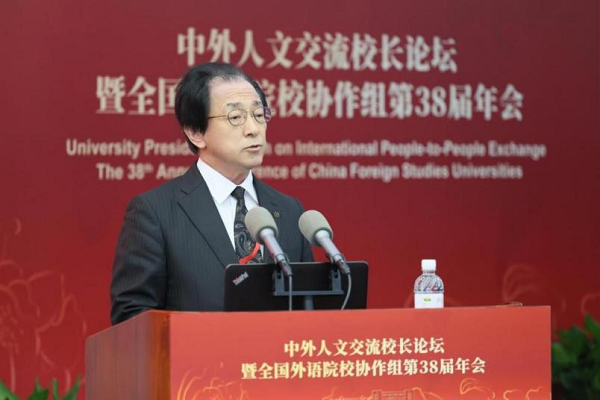
Takanori Ono gives a speech on the importance of language education in today's diverse world.
Chang Yu, secretary of the CPC BISU Committee, elaborated on the foreign language talents BISU aims to cultivate in the age of artificial intelligence. He outlined the university's reforms in talent development to meet the demands of contemporary international people-to-people exchange, reaffirming BISU's dedication to training high-end translation professionals and bolstering its role in initiatives such as the Belt and Road Initiative.
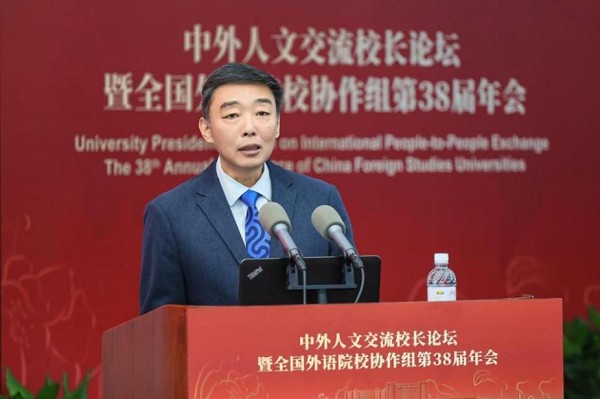
Chang Yu outlines BISU's reforms in talent development.
During the round table forums, experts and scholars from various institutions engaged in discussions on the development and challenges of international people-to-people exchange in the new era. They explored pathways for higher education development in the age of artificial intelligence, talent cultivation in foreign language institutions, and enhancing the effectiveness of international communication.
Guests discuss multiple topics during the round table forums.

Links
